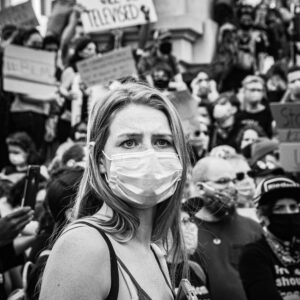In recent years, single-issue voting has become increasingly infamous for deciding the outcomes of elections. As the term suggests, single-issue voters are eligible voters who make voting decisions based on a candidate’s position on one particular issue. Prominent issues that are at the forefront of single-issue voters’ minds today are abortion, inflation, gun rights, climate change, and in Connecticut, particularly, school choice or charter schools.
Why does it matter? Why should we be concerned about single-issue voters? Certainly, people have the right to vote for a particular candidate or particular issue, as in the case of a referendum. However, in most elections, it is not just a single issue at stake. In this country, the lives of 300 million people are affected in some way by the outcome of local, state, and national elections. And for most, one single issue will not completely upend or improve one’s life. It is in the culmination of solving for the many issues and problems that affect communities and individual lives that we can see real progress. A focus on one issue, therefore, can take away from other equally important issues.
For example, there are elected officials doing really good work to bring change to their communities but have the risk of being unseated due to a single issue. Even more mind-boggling is when voters vote against their own interests and beliefs on multiple issues just to vote for a candidate with whom they align on only one issue. Many would say it’s all part of politics, and this is what happens in a democracy. That may be true, but it overlooks the danger of single-issue voting, failing to acknowledge what can be lost, and the reckoning that occurs when single-issue voting unseats one elected official and puts another in place that turns out to be even less desirable.
The tunnel vision aspect of single-issue voting reminds me of the excellent TED Talk by Chimamanda Ngozi Adichie, The Danger of a Single Story, in which she warns that “if we hear only a single story about another person or country, we create stereotypes and risk a critical misunderstanding. The problem with stereotypes, she says, is “not that they are untrue, but that they are incomplete. They make one story become the only story.” Similarly, if we focus on a single issue when casting our ballots, we risk voting for incomplete stories.
Certainly, it is the right of every voter to choose how, for what, and for whom they will vote. However, we should endeavor to exercise that right with all the fullness and nuance of a complete story.






